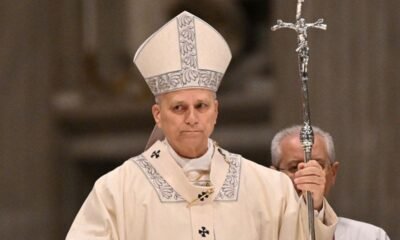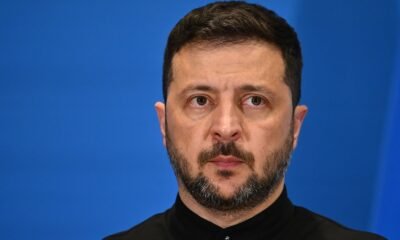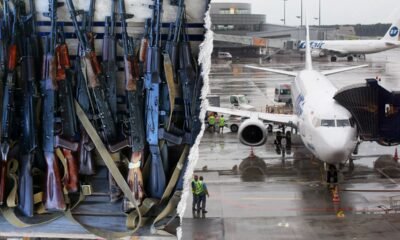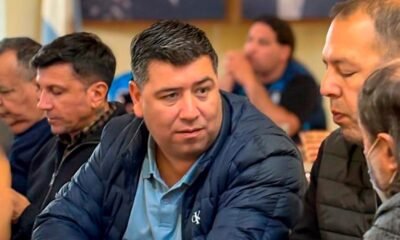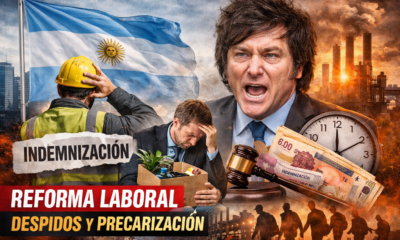INTERNACIONAL
Trump ‘dramatically’ changes tune on Ukraine but experts caution Putin is still waiting for action

NEWYou can now listen to Fox News articles!
President Donald Trump this week shocked the international community when he said he flipped his position on the war in Ukraine and said he thinks Kyiv could re-take all of its occupied land seized by Russia.
In a Tuesday comment on social media, he said, «I think Ukraine, with the support of the European Union, is in a position to fight and win all of Ukraine back in its original form.»
«With time, patience, and the financial support of Europe and, in particular, NATO, the original borders from where this war started, is very much an option,» he added. «Why not?»
This position is a stark reversal from where he stood when he first re-entered office and, in an infamous February Oval Office meeting with Ukrainian President Volodymyr Zelenskyy, told him he «[didn’t] have the cards» to take on Russia, and repeatedly suggested Kyiv would need to make significant concessions to end the war.
TRUMP AND ZELENSKYY SIGNAL STRONGER TIES AFTER UN MEETING: ‘BETTER RELATIONS THAN BEFORE’
Ukrainian President Volodymyr Zelenskyy meets with President Donald Trump on the sidelines of the UNGA in New York City on Sept. 23, 2025. (Ukrainian Presidency / Handout/Anadolu via Getty Images)
«We’re seeing that his approach to Russia’s war on Ukraine has already changed dramatically,» Yuriy Sak, former defense advisor to Zelenskyy, told Fox News Digital. «This change of his approach will hopefully translate into more unity in terms of the Western alliance and their support for Ukraine.»
The response to Trump’s change in attitude was met with mixed responses from top security experts, with some viewing it as a positive shift, while others, like former CIA Moscow station chief Dan Hoffman, argued that words alone will have little effect on Russian President Vladimir Putin.
«For all the years I spent trying to see the world through the twisted KGB eyes of Vladimir Putin…he does not care about words,» Hoffman said. «He thinks he can use them against us.
«We did not deter him from threatening Poland, Estonia, Copenhagen and Norway militarily — the United States and NATO did not deter him. He did it,» Hoffman continued, referring to airspace violations in which Russia deployed drones and fighter jets over NATO nations in incidents that have occurred since Trump re-entered the White House.
«He’s trying to show that the United States doesn’t have the throw-weight to deter Russia from threatening NATO members in Eastern Europe,» the Russian security expert argued. «He wants to try to show Ukraine the United States doesn’t have the ability to project power in that part of the world. To show Ukraine ‘you don’t want to rely on the United States, stop fighting, we’re going to beat you anyways, we’re going to tap you out’ — that’s where his strategy is.»
TRUMP MOCKS NATO ALLIES FOR ‘FUNDING THE WAR AGAINST THEMSELVES’ WITH RUSSIAN ENERGY PURCHASES
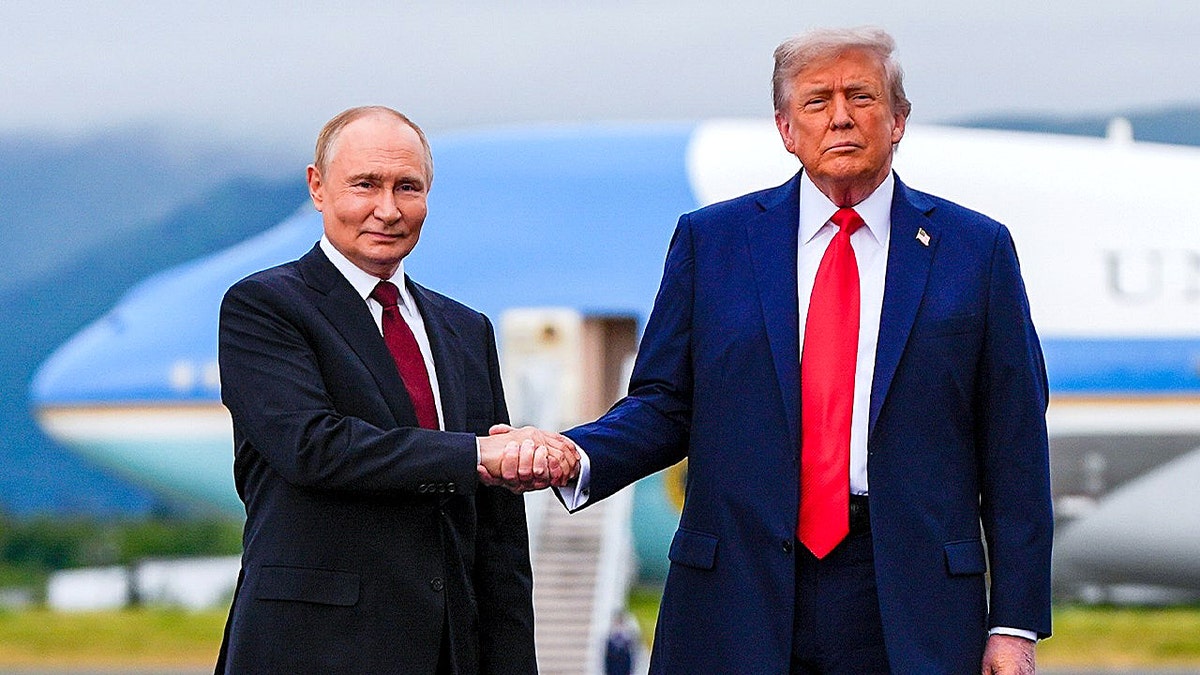
President Donald Trump greets Russian President Vladimir Putin on Aug. 15, 2025, at Joint Base Elmendorf-Richardson, Alaska. (Julia Demaree Nikhinson/The Associated Press)
Russia on Wednesday pushed back on Trump’s comments and suggested he was «mistaken» in his assessment of how the war is progressing.
«The dynamics on the front lines speak for themselves,» Kremlin spokesperson Dmitry Peskov told reporters, according to Reuters.
Russia has made few to no major advances on the front lines since early 2024. Though some small advances have been achieved this year, the front lines have remained largely frozen for the last 18 months.
Hoffman argued that if the U.S. wants to see Ukraine make advances, it needs to lift all strike restrictions it has in place and immediately enforce secondary sanctions, rather than wait on Europe to simultaneously follow suit, as they will take months to take a toll on Russia’s war chest.
Washington also should consider strong-arming NATO allies, including Germany to provide Ukraine with long-range strike missiles, and Denmark to close the Danish Strait to Russia’s shadow fleet, as well as get Trump allies, like Hungarian Prime Minister Viktor Orban, to stop buying Russian oil.
While Hoffman argued there is more to be done before Putin actually starts to re-evaluate his war operations in Ukraine, Lithuanian Defense Minister Dovilė Šakalienė said the president’s position reversal was «very encouraging.»
«I completely agree with the statement that, definitely, Ukraine has a right and a chance, with our full support, to go back to regain its original borders, its internationally recognized borders,» she told Fox News Digital. «Because why not?»
Sakaliene echoed Hoffman and said Ukraine needs the proper support to fully counter Russia, and without more U.S. and NATO support, not only will Ukraine be unable to make advances on the battlefield, Russia will continue to threaten NATO — increasing the risk of a massive international war.
RUSSIA SHIFTS FROM TALK TO ACTION, TARGETING NATO HOMELAND AMID FEARS OF GLOBAL WAR
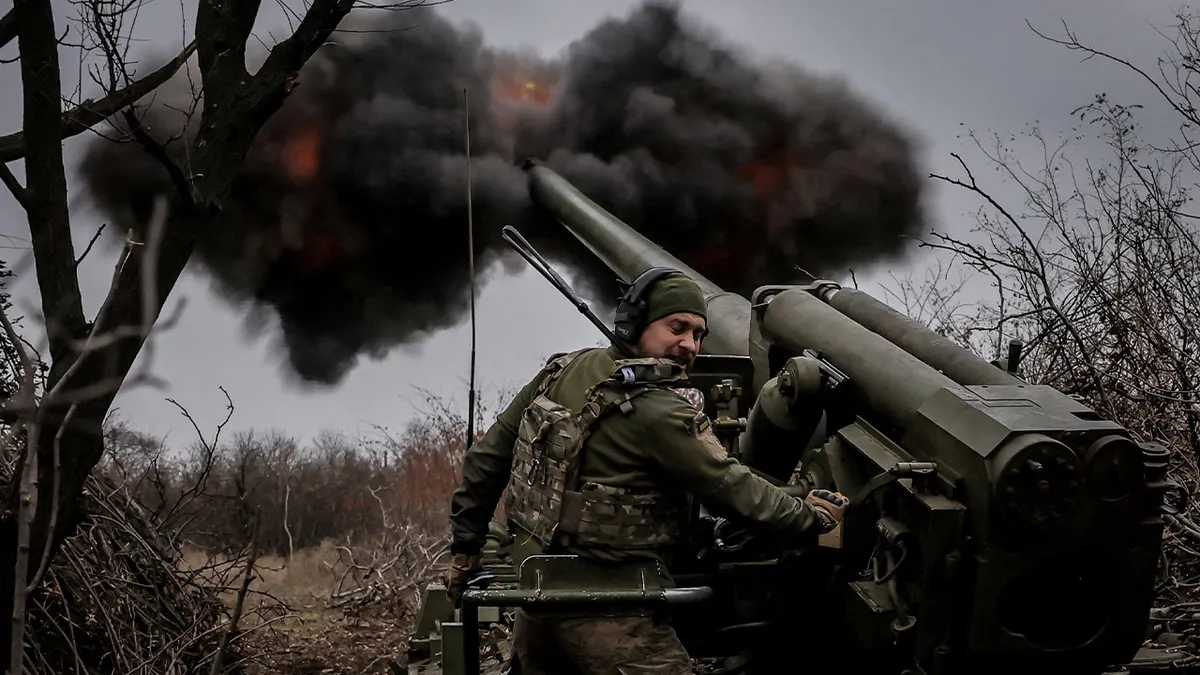
A serviceman of 24th Mechanized brigade named after King Danylo of the Ukrainian Armed Forces fires a 2s5 «Hyacinth-s» self-propelled howitzer towards Russian troops at a front line, amid Russia’s attack on Ukraine, near the town of Chasiv Yar in Donetsk region, Ukraine Nov. 18, 2024. (Oleg Petrasiuk/Press Service of the 24th King Danylo Separate Mechanized Brigade of the Ukrainian Armed Forces/Handout via REUTERS )
«The only obstacle would be our fear — our inability to defend the rules of the world that we live in,» she said. «The recent series of incidents, both drone related in Lithuania, Estonia, Latvia, Poland, and also related to the incursion into our air space by Russian fighter jets, demonstrate again and again that Russia is coloring outside the lines.
«It’s going to continue [and] it’s going to escalate, because they feel that they are unpunishable, because they feel that they are untouchable, and that means that they are happily challenging NATO as well,» Sakaliene said.
All three security experts agreed that the U.S.’s role in countering Putin is «critical» and the argument that the U.S. should take a backseat to Europe weakens the united front necessary to stop Russia.
«The current world security architecture is built around the axis of the United States,» Sakaliene said, arguing that the system shouldn’t be exploited, but supported by Europe’s bolstering of its own military capabilities. «But that also means that the voice of the United States was and is still vital for certain decisions related to a security of a democratic world.»
«And that the United States’ voice is the one that Russia hears the loudest,» she said.
Trump on Tuesday suggested Ukraine should not only retake the land seized by Russia, but «maybe even go further than that.»
Sak pushed back on this and said Ukraine is viewing the situation through a «realistic» lens.
«We’ve never had the ambition to conquer Russian territory. We don’t need it,» Sak said. «We just want them out of our land.
«We understand that at this stage, even this objective is not possible to achieve through military means,» he continued. «It will have to be a mixture of diplomatic means, and it probably will take a long time.»
Ultimately, Ukraine viewed Trump’s comments not as a signal that the U.S. is going to take immediate action, but rather as a «confirmation» that Trump is now fully on board with backing Ukraine, and aligning itself with the NATO alliance.
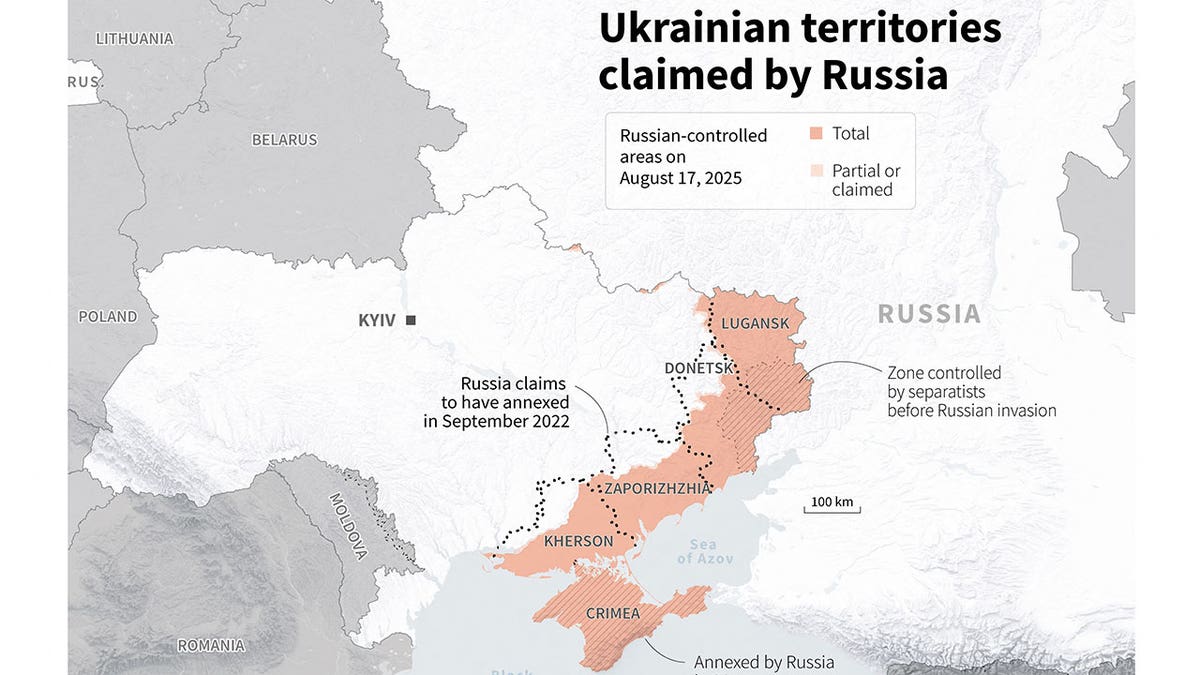
Infographic with a map of Ukraine locating territories claimed by Russia (Donetsk, Lugansk, Zaporizhzhia, Kherson and Crimea, which was annexed in 2014), as well as Russian territorial advances, according to data from the Institute for the Study of War (ISW) and AEI’s Critical Threats Project, as of Aug. 17, 2025. (Guillermo Rivas Pacheco,Jean-Michel Cornu/AFP via Getty Images)
CLICK HERE TO GET THE FOX NEWS APP
«Standing shoulder to shoulder with the European partners of Ukraine…this alone represents a big threat to Russia,» Sak argued. «They know it, and this, once again, sends them a message that this is an unwinnable war for them.
«Sooner or later, when we cripple their economy in a combination of sanctions plus the deep strike drones that we carry out on a daily basis, Russia will be in a position that, despite their willingness to fight this war and continue to cause these crimes of aggression, it will not just be able to do so purely for economic reasons,» Sak added.
donald trump,ukraine,russia,nato,vladimir putin,volodymyr zelenskyy,world,europe
INTERNACIONAL
De Fujimori a José Jerí: los presidentes de Perú investigados y expulsados del poder
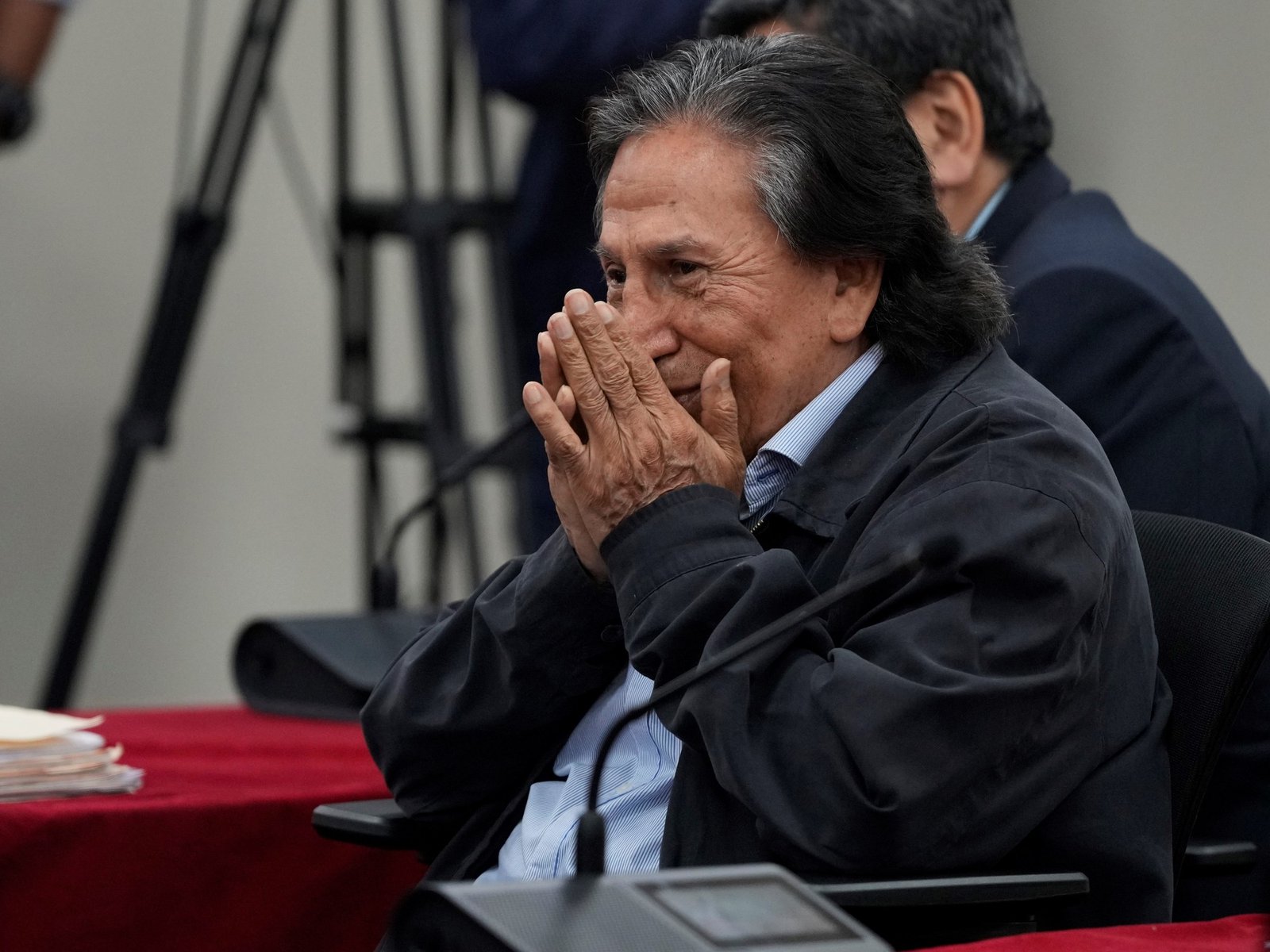
1. Alberto Fujimori (1990-2000)
2. Alejandro Toledo (2001-2006)
3. Alan García (1985-1990 y 2006-2011)
4. Ollanta Humala (2011-2016)
5. Pedro Pablo Kuczynski (2016-2018)
6. Martín Vizcarra (2018-2020)
7. Pedro Castillo (2021-2022)
8. Dina Boluarte
9. José Jerí
INTERNACIONAL
US moves to expand missiles in Philippines, putting China within range

NEWYou can now listen to Fox News articles!
The U.S. is preparing to expand the deployment of advanced missile systems in the northern Philippines, placing additional long-range strike capability within range of key Chinese military assets and reinforcing Washington’s effort to counter Beijing’s growing assertiveness across the Indo-Pacific.
U.S. and Philippine officials announced plans to increase deployments of «cutting-edge missile and unmanned systems» to the treaty ally, as both governments condemned what they described as China’s «illegal, coercive, aggressive and deceptive activities» in the South China Sea.
The move comes as confrontations between Chinese and Philippine vessels have intensified in disputed waters and as Beijing continues to pressure Taiwan, raising the stakes across the region’s most sensitive flashpoints.
It builds on the deployment of the U.S. Army’s Typhon missile system in northern Luzon, Philippines, a ground-based launcher capable of firing Tomahawk cruise missiles that can travel more than 1,000 miles.
TAIWAN UNVEILS $40B DEFENSE SPENDING PLAN TO COUNTER CHINA MILITARY THREAT OVER NEXT DECADE
The U.S. is preparing to expand the deployment of advanced missile systems in the northern Philippines. (Tim Kelly/Reuters)
Tomahawks can travel more than 1,000 miles — a range that, from northern Luzon, Philippines, places portions of southern China and major People’s Liberation Army (PLA) facilities within reach. The positioning also allows the U.S. and Philippine militaries to cover large swaths of the South China Sea and key maritime corridors connecting it to the broader Pacific.
The U.S. first deployed the Typhon system to Luzon, Philippines, in April 2024. An anti-ship missile launcher known as the Navy Marine Expeditionary Ship Interdiction System was deployed in 2025 to Batan Island in the northernmost Philippine province of Batanes.
That island faces the Bashi Channel, a strategic waterway just south of Taiwan that serves as a critical transit route for commercial shipping and military vessels moving between the South China Sea and the Western Pacific. Control of that channel would be vital in any potential Taiwan contingency.
BIPARTISAN HOUSE CHINA PANEL SLAMS BEIJING’S TAIWAN DRILLS AS ‘DELIBERATE ESCALATION’

U.S. and Philippine officials announced plans to increase deployments of «cutting-edge missile and unmanned systems» to the treaty ally, as both governments condemned what they described as China’s «illegal, coercive, aggressive and deceptive activities» in the South China Sea. (Eloisa Lopez/Reuters)
Beijing has urged Manila to withdraw the U.S. systems from its territory, but officials under President Ferdinand Marcos Jr. have rejected those demands.
«China has consistently stated its firm opposition to the United States’ deployment of advanced weapons systems in the Philippines. The introduction of strategic and offensive weapons that heighten regional tensions, fuel geopolitical confrontation, and risk triggering an arms race is extremely dangerous. Such actions are irresponsible to the people of the Philippines, to Southeast Asian nations, and to regional security as a whole,» Chinese embassy spokesperson Liu Pengyu told Fox News Digital. «The United States is not a party to disputes in the South China Sea and has no standing to intervene in maritime issues between China and the Philippines.»
«The Taiwan question lies at the very heart of China’s core interests. China’s determination to defend its national sovereignty, security, and territorial integrity is unwavering. Any provocation that crosses red lines on Taiwan will be met with resolute countermeasures, and any attempt to obstruct China’s reunification is doomed to fail,» Liu continued.
Neither side detailed how many additional systems would be sent or whether the deployments would be permanent, but Philippine Ambassador to Washington Jose Manuel Romualdez said U.S. and Filipino defense officials discussed deploying upgraded missile launchers that Manila may eventually seek to purchase.
«It’s a kind of system that’s really very sophisticated and will be deployed here in the hope that, down the road, we will be able to get our own,» Romualdez told The Associated Press.
Romualdez stressed that the deployments are intended as a deterrent.
CHINA WARNS OF RISING WAR RISK AFTER HISTORIC US ARMS SALE TO TAIWAN
«It’s purely for deterrence,» he said. «Every time the Chinese show any kind of aggression, it only strengthens our resolve to have these types.»
China repeatedly has objected to the missile deployments, warning they threaten regional stability and accusing Washington of trying to contain its rise.
In a joint statement following annual bilateral talks in Manila, the U.S. and the Philippines underscored their support for freedom of navigation and unimpeded commerce in the South China Sea — a vital global trade artery through which trillions of dollars in goods pass each year.

Members of the Chinese People’s Liberation Army (PLA) Navy march during the rehearsal ahead of a military parade to mark the 80th anniversary of the end of World War Two, in Beijing, Sept. 3, 2025. (Maxim Shemetov/Reuters)
«Both sides condemned China’s illegal, coercive, aggressive and deceptive activities in the South China Sea, recognizing their adverse effects on regional peace and stability and the economies of the Indo-Pacific and beyond,» the statement said.
China claims virtually the entire South China Sea despite an international tribunal ruling in 2016 that invalidated many of its sweeping claims. In recent years, Chinese coast guard and maritime militia vessels have clashed repeatedly with Philippine ships near disputed shoals, including Second Thomas Shoal.
HIGH STAKES ON THE HIGH SEAS AS US, CHINA TEST LIMITS OF MILITARY POWER
The expanded missile deployments also come as the Pentagon balances rising tensions in multiple theaters. In recent weeks, the USS Abraham Lincoln carrier strike group — which had been operating in the Indo-Pacific — was redirected toward the Middle East as the U.S. moved to bolster its posture amid escalating tensions with Iran.
The deployments also reflect a broader U.S. effort to strengthen its military posture along the so-called «first island chain» — a string of territories stretching from Japan through Taiwan and the Philippines that forms a natural barrier to Chinese naval expansion into the Pacific.
Washington has deepened defense cooperation with Manila under the Enhanced Defense Cooperation Agreement, expanding U.S. access to Philippine bases, including sites in northern Luzon close to Taiwan.
China in May released a national security white paper criticizing the deployment of an «intermediate-range missile system» in the region — widely viewed as a reference to the U.S. Typhon launcher in the Philippines. The document accused unnamed countries of reviving a «Cold War mentality» and forming military «small groups» that aggravate regional tensions.
For U.S. planners, dispersing mobile, land-based missile systems across allied territory complicates Beijing’s military calculus. Instead of relying solely on ships and aircraft, the U.S. can field ground-based systems that are harder to track and capable of holding Chinese naval and air assets at risk.
CLICK HERE TO DOWNLOAD THE FOX NEWS APP
For Beijing, however, such deployments reinforce its long-standing claim that the United States is encircling China militarily.
As tensions simmer in both the South China Sea and around Taiwan, the positioning of long-range U.S. missile systems on Philippine soil underscores how the strategic competition between Washington and Beijing is increasingly being defined by geography — and by which side can project credible deterrent power across it.
china,pacific,conflicts defense,defense
INTERNACIONAL
Por qué el arroz con huevo brinda los mismos beneficios que la carne roja en proteínas, según los expertos

La combinación de arroz con huevo, consumida a diario en numerosos hogares y comedores, se consolidó como una de las alternativas más eficientes y accesibles en términos nutricionales. Personas de diferentes edades y contextos la eligen por su practicidad, su bajo costo y su capacidad para aportar proteínas completas y energía sostenida. El interés por este plato creció especialmente entre quienes buscan una alimentación saludable y balanceada.
Tradicionalmente, el arroz con huevo fue visto como una solución ante la escasez o como un recurso rápido en la cocina. Sin embargo, los avances en la ciencia de los alimentos permitieron demostrar que esta mezcla supera a la carne roja en varios aspectos nutricionales. Deportistas, estudiantes y familias encuentran en este plato una fuente de proteínas, vitaminas y minerales esenciales para el funcionamiento del organismo.
Especialistas en nutrición y ciencia de los alimentos sostienen que el valor de esta combinación radica en la calidad de sus proteínas y en su aporte energético. Según investigaciones recientes citadas por O Globo, el arroz aporta energía rápida y fibra, mientras que el huevo completa el perfil de aminoácidos, logrando una proteína de alta calidad.
La combinación de arroz con huevo ofrece una proteína de alto valor biológico, comparable a la de la carne roja en términos de calidad y aprovechamiento por el organismo. Según la Organización de las Naciones Unidas para la Alimentación y la Agricultura (FAO), mezclar cereales como el arroz con huevo permite obtener todos los aminoácidos esenciales en proporciones óptimas, lo que hace que esta alternativa cumpla la misma función estructural y reparadora que las proteínas animales más reconocidas.

Esta equivalencia proteica, sumada a su bajo costo y accesibilidad, convierte al arroz con huevo en una opción eficiente y saludable para quienes buscan cubrir sus necesidades nutricionales sin recurrir necesariamente a la carne roja.
De acuerdo con O Globo, la clave nutricional del arroz con huevo reside en el concepto de Valor Biológico (VB). El arroz carece de lisina, un aminoácido esencial, pero el huevo lo contiene en cantidad suficiente para complementar el cereal. Así, el organismo aprovecha mejor las proteínas, que se utilizan para reparar tejidos, producir hormonas y mantener la masa muscular.
Diversos estudios comparativos muestran que la eficiencia de la proteína formada por arroz y huevo iguala o supera la de la carne roja. Esta combinación también resulta más económica y accesible, lo que favorece su inclusión en la dieta diaria. Quienes practican actividades físicas intensas o deportes de resistencia eligen el arroz con huevo como aliado estratégico por su fácil digestión y sus beneficios de recuperación muscular.
Bruno Román, especialista en ciencia de los alimentos, explicó al portal Miyeilis Flores: “El arroz con huevo es como un juego de Lego: el huevo coloca las piezas que faltan al arroz para construir salud”. Según Román, la sinergia entre ambos alimentos representa un ejemplo de optimización nutricional sin necesidad de recurrir a suplementos.

El arroz con huevo puede optimizarse mediante técnicas sencillas en la cocina. Una de ellas es el choque térmico: cocinar el arroz con anticipación, dejarlo enfriar en la heladera y luego recalentar suavemente antes de consumirlo. Según recomendaciones de expertos en nutrición, este proceso genera almidón resistente, una fibra que se absorbe lentamente y favorece la microbiota intestinal.
En materia de seguridad alimentaria, se aconseja lavar el arroz varias veces hasta que el agua salga transparente y utilizar suficiente agua en la cocción para reducir la presencia de arsénico, mineral que el cereal absorbe del suelo. El consumo responsable y cuidadoso garantiza un plato seguro y saludable para todos los integrantes de la familia.
Para evitar picos de glucosa en sangre, la sugerencia es acompañar el arroz con huevo con una porción de vegetales verdes. Según especialistas en endocrinología citados por O Globo, la fibra de estos vegetales ralentiza la absorción del almidón y ayuda a mantener estables los niveles de azúcar. Esta recomendación resulta especialmente útil para personas con diabetes o que buscan controlar el peso corporal.

El equilibrio en las proporciones de arroz y huevo es fundamental para obtener el máximo beneficio nutricional. De acuerdo con los expertos, la relación ideal consiste en media taza de arroz por cada huevo. Este balance evita el exceso de carbohidratos y asegura un buen aporte proteico, necesario para la regeneración y el crecimiento de los tejidos.
La cocción del huevo también requiere atención. Evitar el calor excesivo que dora las bordes previene la degradación de proteínas y la oxidación de las grasas saludables de la yema. Así, el valor nutricional se mantiene intacto y el plato conserva su eficacia como fuente de energía y nutrientes.
El arroz con huevo admite múltiples variantes según los objetivos personales y las costumbres regionales. Algunas personas añaden verduras frescas, hierbas o especias para enriquecer el sabor y sumar nutrientes. Otras prefieren incorporar aceite de oliva o semillas para aumentar el contenido de ácidos grasos saludables, siempre cuidando la moderación y el equilibrio.
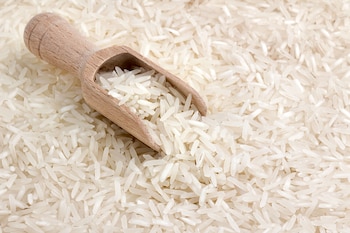
El arroz con huevo no solo destaca por su valor nutricional, sino también por su bajo costo y su versatilidad en la cocina. Esta preparación permite alimentar a grandes grupos familiares y se adapta tanto al desayuno como al almuerzo o la cena. Además, constituye una alternativa sostenible en comparación con las carnes rojas, cuyo impacto ambiental resulta considerablemente mayor.
El conocimiento y la difusión de los beneficios del arroz con huevo permiten tomar decisiones alimentarias más informadas. Incorporar esta combinación a la rutina diaria contribuye a la salud individual y colectiva. La simplicidad de los ingredientes y la facilidad de preparación convierten al arroz con huevo en una herramienta clave para una alimentación equilibrada.
Optimizar la preparación y acompañar el plato con vegetales asegura el máximo aprovechamiento de sus ventajas. El arroz con huevo confirma que la nutrición de calidad puede ser accesible, económica y deliciosa.
arroz con huevo

 POLITICA1 día ago
POLITICA1 día agoCristian Ritondo: “Vamos a apoyar la ley de modernización laboral, pero no el régimen de licencias por enfermedad”

 POLITICA3 días ago
POLITICA3 días agoUno de los jefes de la CGT adelantó que convocarán a un paro general por la reforma laboral: “Trabajaremos para que sea una gran huelga”

 POLITICA14 horas ago
POLITICA14 horas agoReforma laboral bomba: menos indemnización, más horas y despidos más fáciles — el cambio que puede sacudir el empleo en Argentina

